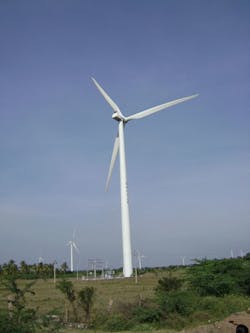Algonquin Power and Utilities to build $49 million wind farm in Michigan
Renewable energy firm Algonquin Power and Utilities Corp has awarded the contract for the construction of a 110MW utility-scale Deerfield II Wind Farm in Huron County, Michigan, to White Construction.
The $49 million contract will involve the construction of a 41-mile collection system, 5.5 miles of private access roads, a meteorological evaluation tower, a substation and the installation of 21 wind turbine generators. The target construction date is April 2022 and commercial operation late that year.
White Construction is a subsidiary of Infrastructure and Energy Alternatives. The Huron County project will focus on minimizing its impact on wetlands and streams.
Huron County is part of the Michigan’s Thumb, which includes the Sanilac and Tuscola counties and account for 59% of the total electricity output in Michigan state. Michigan ranks among the top 15 states in the US for wind energy.
About the Author
EnergyTech Staff
Rod Walton is head of content for EnergyTech.com. He has spent 17 years covering the energy industry as a newspaper and trade journalist.
Walton formerly was energy writer and business editor at the Tulsa World. Later, he spent six years covering the electricity power sector for Pennwell and Clarion Events. He joined Endeavor and EnergyTech in November 2021.
He can be reached at [email protected].
EnergyTech is focused on the mission critical and large-scale energy users and their sustainability and resiliency goals. These include the commercial and industrial sectors, as well as the military, universities, data centers and microgrids.
Many large-scale energy users such as Fortune 500 companies, and mission-critical users such as military bases, universities, healthcare facilities, public safety and data centers, shifting their energy priorities to reach net-zero carbon goals within the coming decades. These include plans for renewable energy power purchase agreements, but also on-site resiliency projects such as microgrids, combined heat and power, rooftop solar, energy storage, digitalization and building efficiency upgrades.
